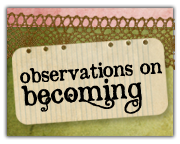 *this was previously written*
*this was previously written*Just for general information, Weekly Aliyah is not a correct way to say something like, "I read the weekly aliyah (meaning parashah portion)", because it does not mean the parashah portion.Aliyah is Jews moving to Yisrael, but it is also when a person is called up to the Torah to read the parashah (weekly reading of the assigned Torah) portion. Each Torah portion (parashah) is divided into 7 aliyot, which are a group of verses, and usually 7 different people read one aliyot (which is the plural of aliyah). I have my own little tradition where I read one aliyot a day starting Sundays. Here is an official definition of aliyah taken from world net search.
At any rate, feel free to question. I should get to the actual Weekly Aliyah, because there is a lot to cover.

Last week, we entered the book of Shemot which means "Names"(Exodus 1:1-6:2).
- The parashah begins with the death of the twelve brothers.
- Within the first chapter, we find the process of the enslavement of the Hebrews.
- We also find in the first chapter the story of Shifrah and Pu'ah, G-d fearing women it says, midwives who refused in actions, not words, to follow Pharaoh's order to kill all males born.
My favorite part is when it says twice that they feared G-d. How strong they must have been? To defy Pharaoh, at a high risk, not for their sakes, but for the sake of the children and their nation. The sages love (or loved) to talk of the role of women in Shemot, the book and the parashah. Imagine if these women were weak, and obeyed Pharaoh, the nation of Yisra'el might not exist. G-d used them to keep his promise of keeping and increasing the nation.
Moreover, the king of Egypt spoke to the Hebrew midwives, one of whom was called Shifrah and the other Pu'ah."When you attend the Hebrew women and see them giving birth," he said, "if it's a boy, kill him; but if it's a girl, let her live." However, the midwives were G-d-fearing women, so they didn't do as the king of Egypt ordered but let the boys live.The king of Egypt summoned the midwives and demanded of them, "Why have you done this and let the boys live?"The midwives answered Pharaoh, "It's because the Hebrew women aren't like the Egyptian women -they go into labor and give birth before the midwife arrives."Therefore G-d prospered the midwives, and the people continued to multiply and grow very powerful.Indeed, because the midwives feared G-d, he made them founders of families. (emphasis mine)
- Chapter 2 begins with the birth of Moshe (Moses) and his mothers' hiding him in the river. Here it also mentions Miriam.
- Pharoahs' daughter finds Moshe, and names him.
- There are two events that show how Moshe felt for his people. He killed an Egyptian in anger because of how he was treating a slave, and he tried to stop two Hebrew men from fighting.
- Moshe flees from Pharoah and meets Yitro's (Jethro) daughters, and marries one of them.
- We can see G-d is about to do something, because someone(Moshe) is seperated, and Chapter 2 closes with mentioning how HaShem hears the cry of the people of Yisra'el, and acknowledges them.
Shifrah
Pu'ah
Yocheved
Miriam
Pharoah's daughter
That is all! I really enjoyed this parashah, Baruch HaShem!








No comments:
Post a Comment
I appreciate your presence. Feel free to share your opinions and perspectives in good spirit! :)